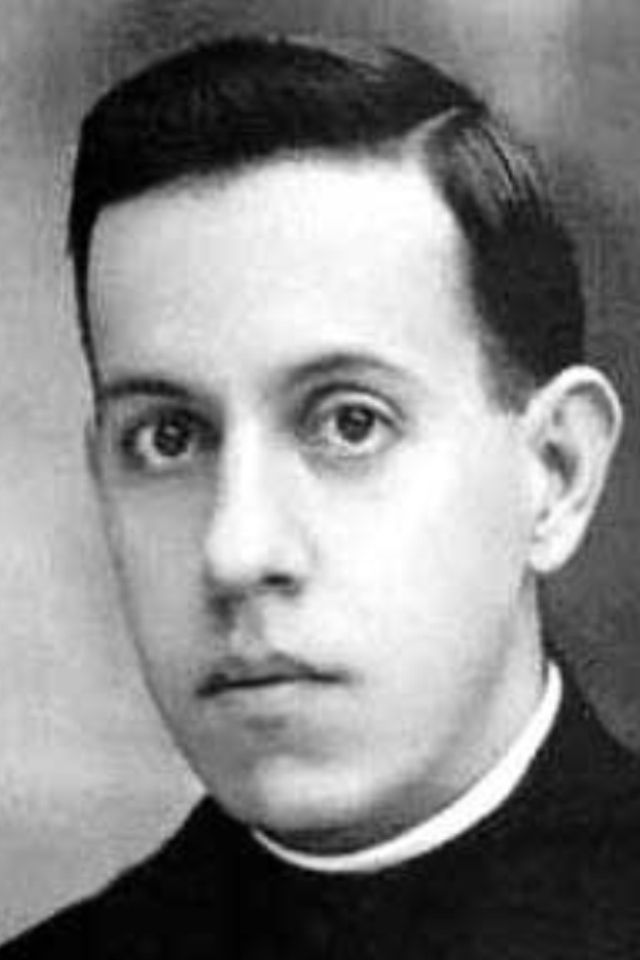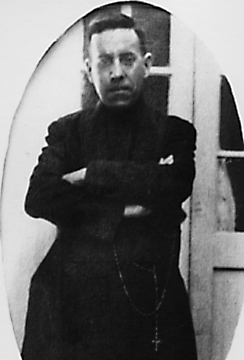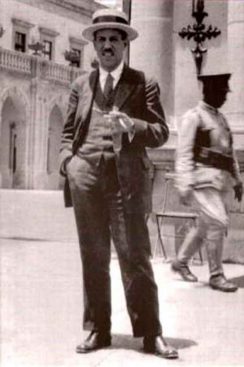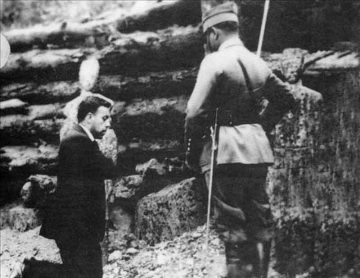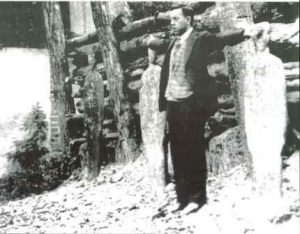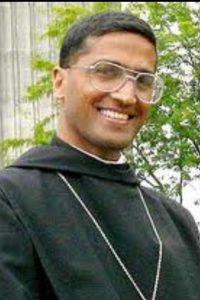 Fr. Abbot John, OSB, the head of Westminster Abbey, told me some years ago, when he was only in his 40s at that time, that every morning he prepares for death.
Fr. Abbot John, OSB, the head of Westminster Abbey, told me some years ago, when he was only in his 40s at that time, that every morning he prepares for death.
Fr. Nicholas, another monk there, when I asked him one time, “Father! How are you?” He looked at me with a big smile and said, “Waiting to go to heaven!” He didn’t pause to think about that answer; that’s what he was actually thinking about.
Finally, when Fr. Paul was dying, Fr. Abbot asked him directly, “Father, are you ready to die?” He nodded, “Yes.”
Are we ready to die? All of us, myself included, are mainly focused on the here and now, and having a good life, so much so that we don’t think about death. We also don’t want to talk about being separated from loved ones. But death comes for everyone. And, if I can do so respectfully and without intending to disturb anyone, how would we feel if we brought up the subject of our children’s death? Eventually, they too will die. That’s a jarring thought, even for some parents who have already lost a child, but it’s also a fact of life. And though we try to avoid it, it doesn’t do us any good. Wise people know it’s unwise to avoid the thought of death. Thinking about it actually will do us a lot of good.
 Now the reason why the monks don’t avoid thinking or talking about death is because it’s our doorway to be with Christ! St. Paul, in the second reading, talks about how he actually wants to die and go to heaven. He says, “Living is Christ and dying is gain… I am hard pressed between the two: my desire is to depart and be with Christ, for that is far better but to remain in the flesh is more necessary for you” (Phil 1:21,23-24).
Now the reason why the monks don’t avoid thinking or talking about death is because it’s our doorway to be with Christ! St. Paul, in the second reading, talks about how he actually wants to die and go to heaven. He says, “Living is Christ and dying is gain… I am hard pressed between the two: my desire is to depart and be with Christ, for that is far better but to remain in the flesh is more necessary for you” (Phil 1:21,23-24).
This is what he’s saying: Life is good (he doesn’t hate life)! Life is about Jesus, following and imitating Him, living in communion with Him; He’s our everything. But dying is better because that means seeing Jesus face-to-face. Paul’s here on this earth to bring other people closer to Jesus, and he’s happy to do it, but he has a deeper desire to go to heaven.
Now I just want to take a little time-out here. This talk about desiring heaven through death doesn’t mean we’re suicidal. No saint ever wanted to commit suicide for two reasons:
- They knew that life had incredible value even when they suffered terribly or were being tortured. But never once did they actually try to hasten their death. They knew that the love they were pouring out when they were suffering could work miracles.
- They knew it was up to God alone to decide when we die, because life on earth, though not as beautiful as heaven, is still part of God’s plan for us to love; they knew they still had a mission. So we should never desire death in order to end life. We should love life and see death as a means to fulfilling our desire to see God.
Many saints had this desire; for example, St. John Paul II’s last words were: “Let me go to the Father’s house.”
In 1927, in Mexico, there was a 36-year-old priest named Miguel Pro who gave his life completely to God and to the people despite the fact that, at the time, because of the persecution of the Church by the government, it was illegal to hold religious services in churches.Miguel famously dressed up in various disguises so that he could travel freely and celebrate Mass, hear confessions and bring the sacraments to the people. He did this for a year, putting himself in extreme danger, until he was finally caught and falsely accused of an assassination attempt, and sentenced to death.
Crowds of people were invited to attend the execution by firing squad so as to witness the defeat of this priest (because of this, we have many photos of the whole thing). While being led out, one of the policeman who captured him asked for his forgiveness, to which Fr. Miguel said, “You have not only my forgiveness but my thanks.”
- Bl. Miguel Pro in disguise
- Bl. Miguel Pro in disguise
- A brief moment of prayer
After that, he asked for a moment to pray and did so for two minutes, then stood up, put his arms in the position of a cross, shouted, “Long live Christ the King!” and went to the Risen Lord (Ann Ball, Modern Saints, 309, 311).
Fr. Miguel was beatified in 1988, but it’s his words “You have not only my forgiveness but my thanks” that we want to focus on. He’s saying, in effect, “I forgive you because what you’re doing is wrong, but this evil act will send me to heaven, and for that, I’m thankful.”
 Last January, we met St. Gianna Beretta Molla of Italy: wife, mother of four, doctor, fast driver, a woman full of life. When she was dying at home at the age of 39, she was in intense pain and in-and-out of consciousness. At one point she said to her husband, “Pietro, I was already over there. Do you know what I saw?” “Tell me quickly,” he said. “No, no, I won’t tell you now. But you see, over there we were too content, too happy, too much in love.” That’s the main reason the saints wanted to die and go to heaven: there, we’re too content, too happy, and too much in love.
Last January, we met St. Gianna Beretta Molla of Italy: wife, mother of four, doctor, fast driver, a woman full of life. When she was dying at home at the age of 39, she was in intense pain and in-and-out of consciousness. At one point she said to her husband, “Pietro, I was already over there. Do you know what I saw?” “Tell me quickly,” he said. “No, no, I won’t tell you now. But you see, over there we were too content, too happy, too much in love.” That’s the main reason the saints wanted to die and go to heaven: there, we’re too content, too happy, and too much in love.
Have you ever loved someone so much that you feel like you want to explode? Think about that. There are moments when we feel like we can’t be any happier. This is sometimes how I feel: I love God so much that I can’t express it in words; I feel like I could explode. When I heard that St. Therese loved God to the point of madness (Fr. Jacques Philippe, Time for God, 78), it resonated with me, because I want to be with Him so much. There have been moments in prayer when I think about heaven and I can almost taste it. All you have to do is think about the moments when you’re so happy, and then realize that heaven’s going to be all this happiness and more. And this happiness will never end.
There’s a wonderful illustration that gives us an idea of how long that happiness will last. It’s called the “Cosmic Calendar.” The universe, as some of us know, is 13.8 billion years old, but it’s hard to fathom that length of time. So the Cosmic Calendar compresses 13.8 billion years into one year, with the Big Bang happening on January 1, with today being Dec. 31 at 11:59 p.m., and every second in this calendar equaling 437 years.
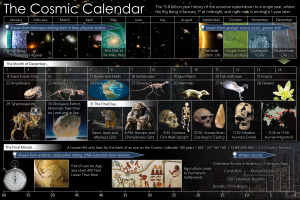 Now, in this calendar, our galaxy is formed in March. Billions of years pass and then the sun and planets form in September. Billions of years pass again and, on Dec. 20, plants come about; on Dec. 25, dinosaurs appear; and finally humans appear on Dec. 31 at 10:24 p.m. So humanity has only been living for an hour and 36 minutes compared to 13.8 billion years, and our life is less than a second compared to 13.8 billion years.
Now, in this calendar, our galaxy is formed in March. Billions of years pass and then the sun and planets form in September. Billions of years pass again and, on Dec. 20, plants come about; on Dec. 25, dinosaurs appear; and finally humans appear on Dec. 31 at 10:24 p.m. So humanity has only been living for an hour and 36 minutes compared to 13.8 billion years, and our life is less than a second compared to 13.8 billion years.
The reality is: We’re all going to die very soon. If some of us live until we’re 95, that’s still nothing compared to eternity.
We shouldn’t be afraid of talking about death. I know, for example, that (my) Chinese culture doesn’t like to talk about it. I disagree with that. There’s a lot of superstition around death, because I couldn’t imagine St. Paul saying that a pregnant woman can’t go to a funeral because it might affect the baby’s health (a Chinese custom)—that’s superstition, not faith or reason.
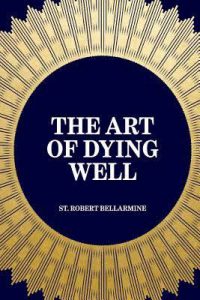 All of us need to pray for a conversion of heart. Robert Bellarmine says the best way to die well is to live well (The Art of Dying Well, Chapter 1). Because not everyone dies well, not everyone is ready. So to die well means we must live well. So I just want to recommend two things.
All of us need to pray for a conversion of heart. Robert Bellarmine says the best way to die well is to live well (The Art of Dying Well, Chapter 1). Because not everyone dies well, not everyone is ready. So to die well means we must live well. So I just want to recommend two things.
 1. My brothers and sisters, don’t commit mortal sin. Mortal sin means there’s something gravely wrong, we know it’s gravely wrong and we still choose to do it anyway. Don’t ever commit one mortal sin because that puts us in the possibility of going to hell. If we die in a state of mortal sin, we choose hell. It’s not worth it. Separating ourselves from God and the possibility of hell is not worth it for momentary pleasure. If we ever do commit a mortal sin, then say an act of perfect contrition and go to Confession asap, and say to Jesus, “Jesus, I’m going to go to Confession as soon as possible,” which in my mind, is within a week’s time. And even if we don’t commit mortal sins, pray this prayer every night, just to apologize for even our smaller venial sins.
1. My brothers and sisters, don’t commit mortal sin. Mortal sin means there’s something gravely wrong, we know it’s gravely wrong and we still choose to do it anyway. Don’t ever commit one mortal sin because that puts us in the possibility of going to hell. If we die in a state of mortal sin, we choose hell. It’s not worth it. Separating ourselves from God and the possibility of hell is not worth it for momentary pleasure. If we ever do commit a mortal sin, then say an act of perfect contrition and go to Confession asap, and say to Jesus, “Jesus, I’m going to go to Confession as soon as possible,” which in my mind, is within a week’s time. And even if we don’t commit mortal sins, pray this prayer every night, just to apologize for even our smaller venial sins.
2. Try to get into the habit of praying at least one decade of the Rosary every day. The second part of the Hail Mary reminds us of reality: “Holy Mary, Mother of God, pray for us sinners, now and at the hour of our death.” Five decades is better, but it’s a great idea to start with one decade a day, which takes about three minutes.
Last point: All the saints we mentioned not only have gone to heaven and are enjoying eternal happiness but they also lived the fullest lives on earth. Isn’t that interesting? The ones who were most aware of death accomplished the most on earth. No one did more missionary work than St. Paul; Bl. Miguel Pro did more in his one year of priesthood than most priests; St. Gianna touched more lives in her 39 years than most people. Thinking about death actually makes us appreciate life more and live it to the fullest!
So, if someone ever asks, “Are you ready to die?” say, “I can’t wait to be with Jesus.” Because death is our doorway to Christ.
